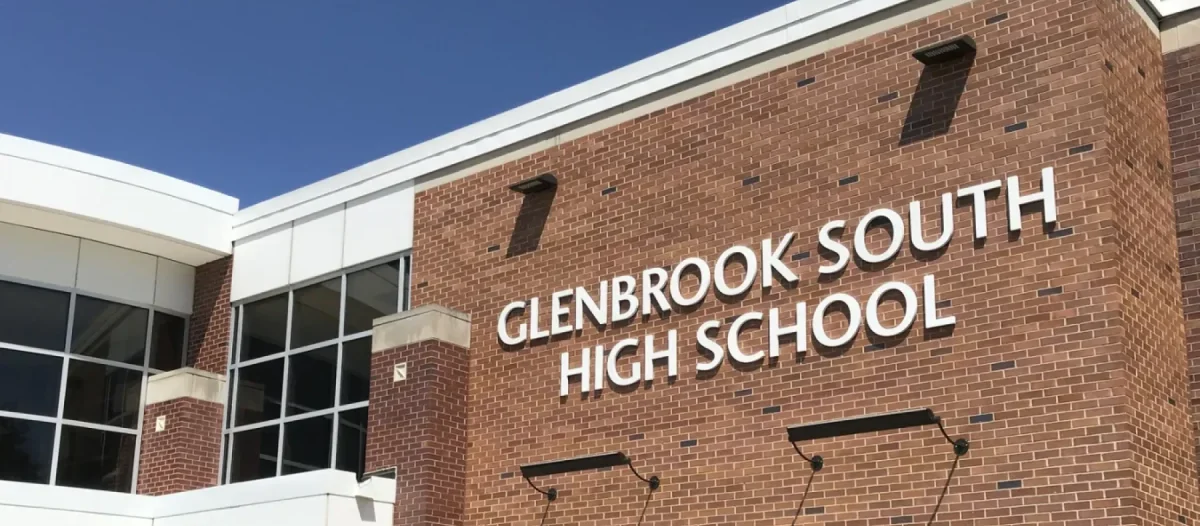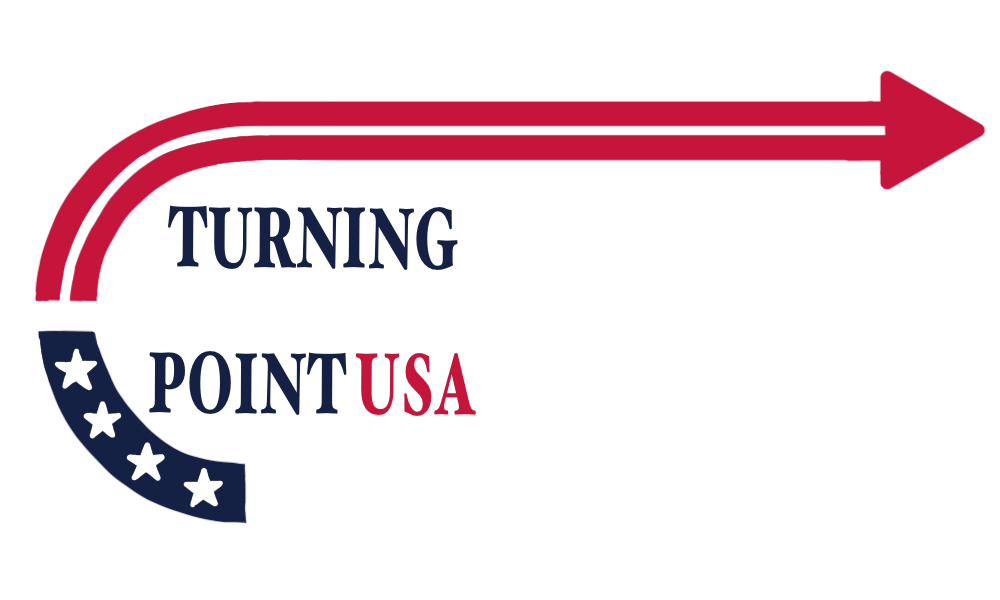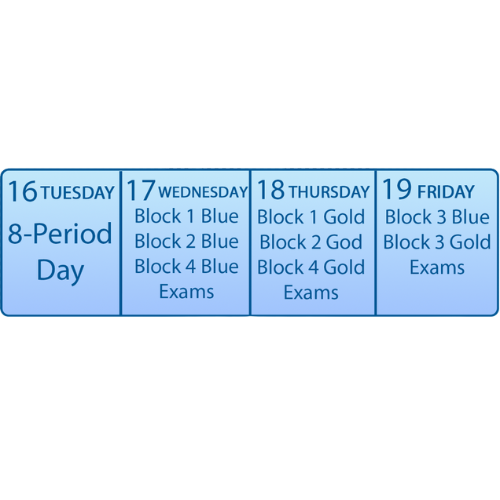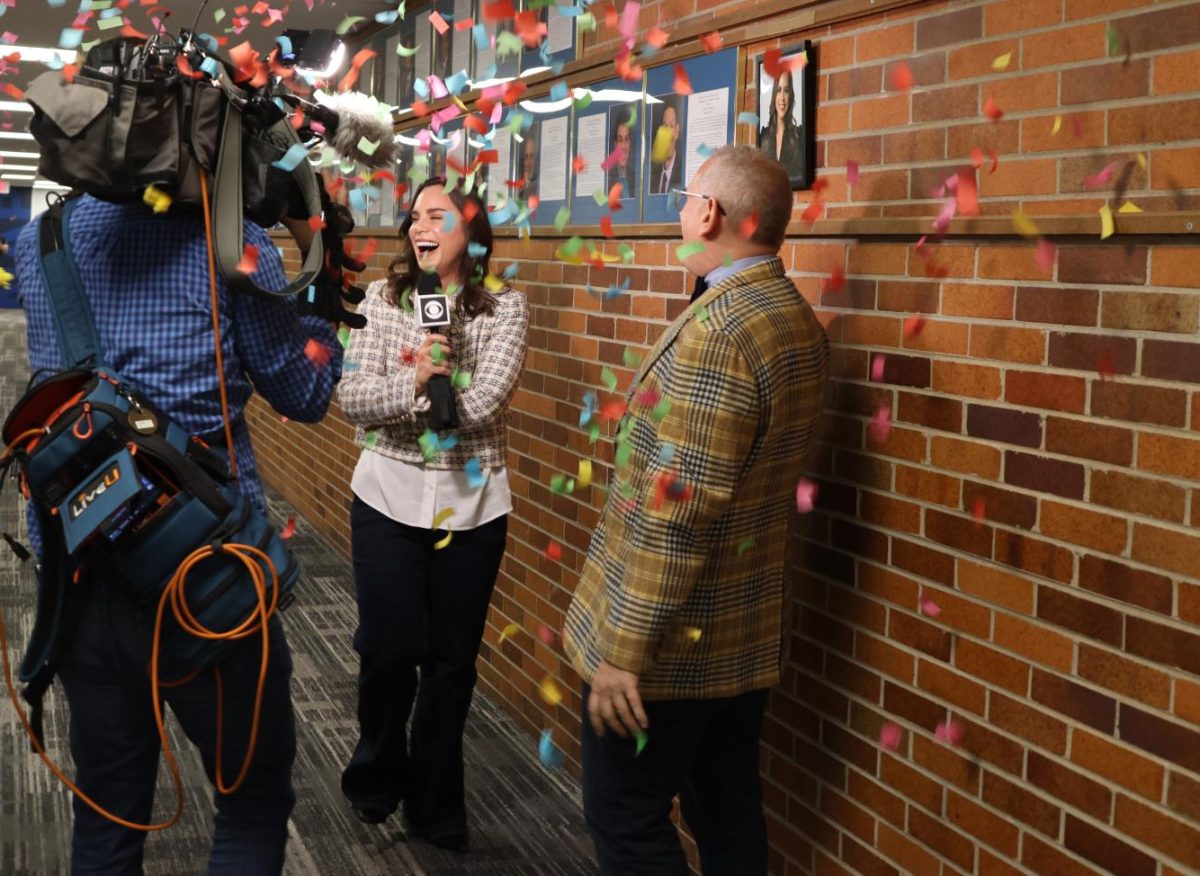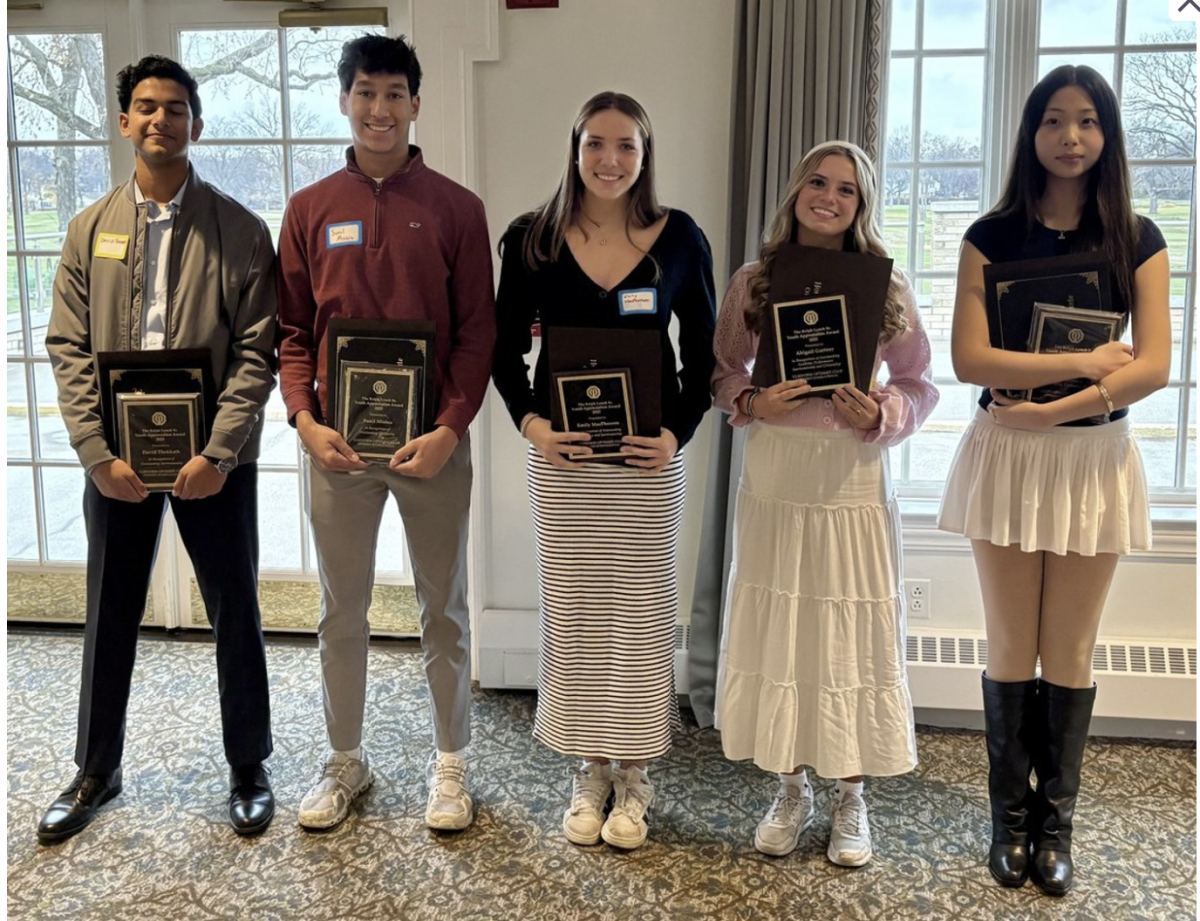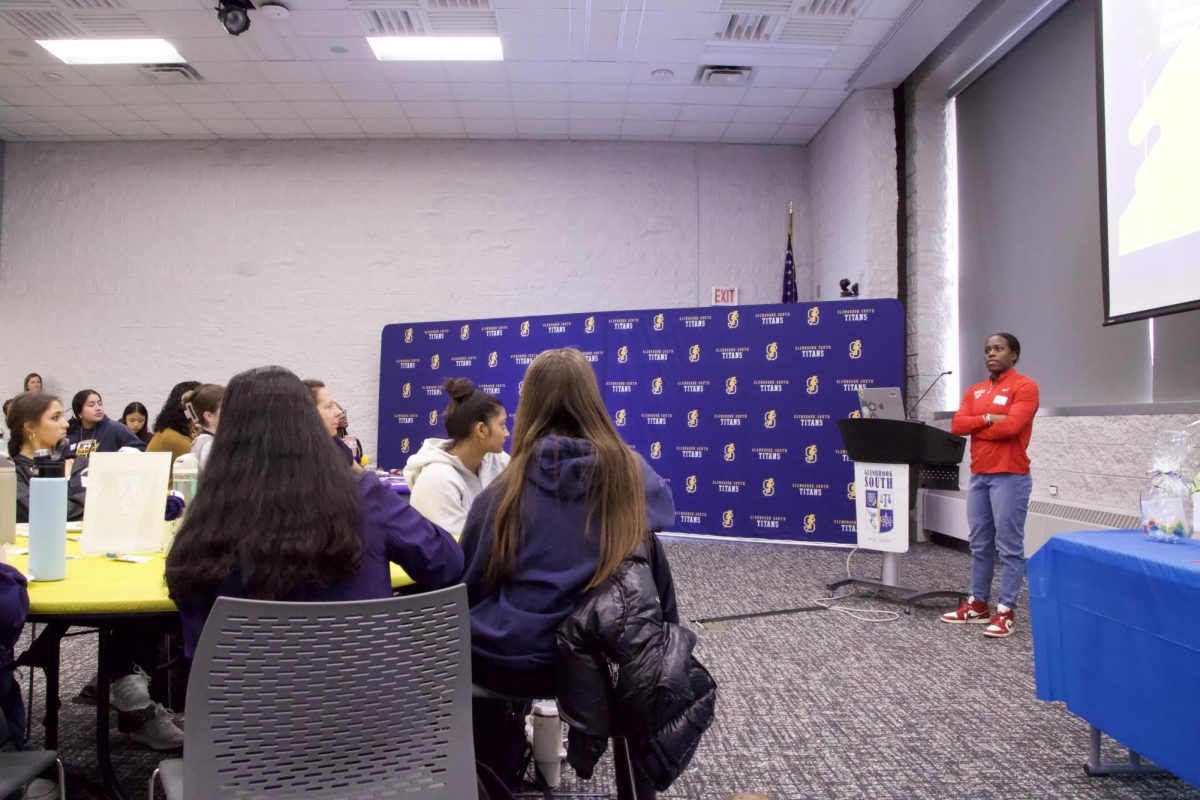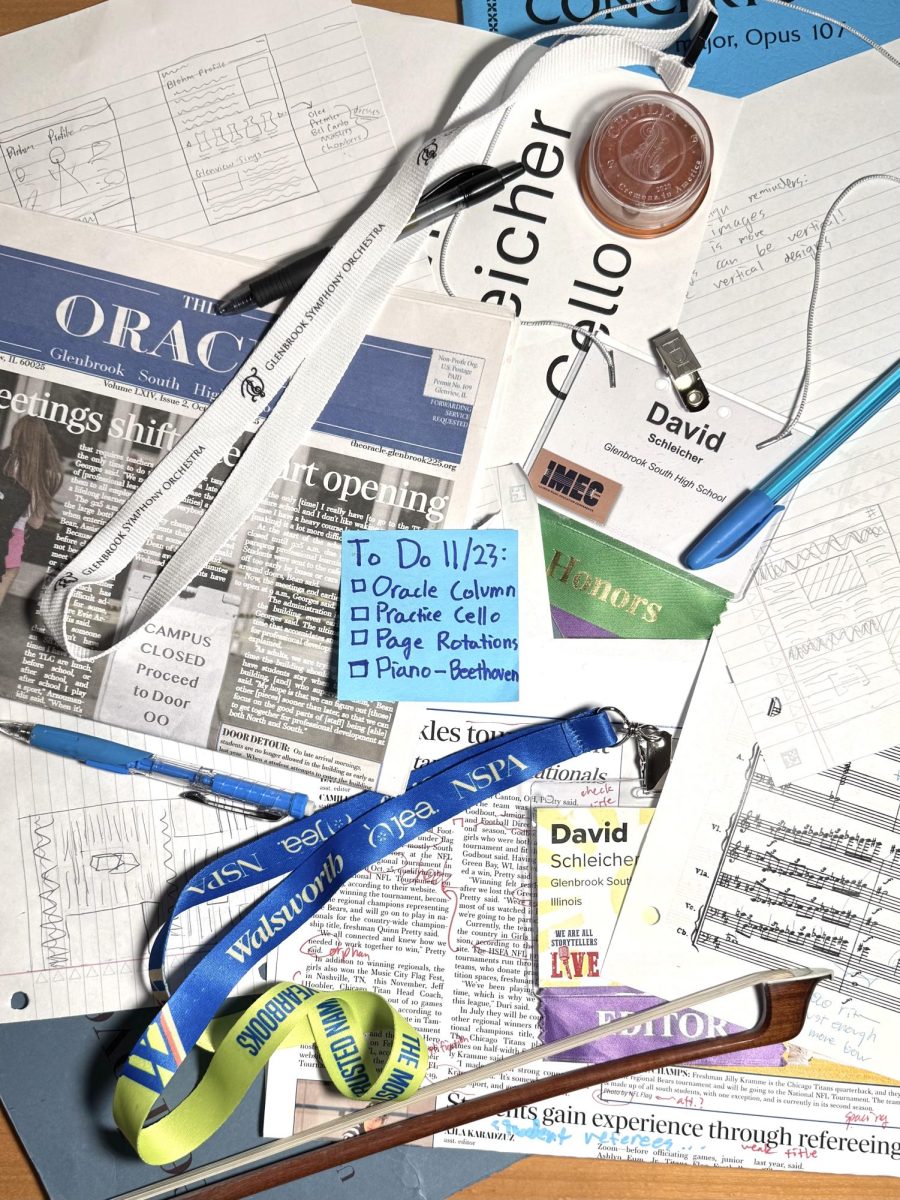At the National Forensic League (NFL) National Tournament in Birmingham, Ala., GBN debaters Nathaniel Sawyer and Natalie Knez beat GBS debaters Bobby Shaw and Ben Wolch, making history as the first students to compete against their own district for the national title.
“It was cool going out that way,” Shaw said. “No matter what a Glenbrook team would win it. We were holding hands as the decision was made. There was no animosity. It was great.”
Shaw was named NFL Student of the Year, an award given to a competitor who demonstrates exceptional skill in forensics, academics, leadership and service, according to GBS debate coach Tara Tate.
June 17-21, the two policy debate partnerships competed in 16 total debates, including the final round that had an audience of 1500-1700, according to Tate, and an online viewership of over 700. In the four times that these pairs debated each other during the year, the GBS partnership won two rounds and the GBN partnership won two rounds, starting the final round off on equal footing, Shaw said.
“It couldn’t have been a better situation against a team from our district with four students who really get along and respect each other,” GBN debate coach Michael Greenstein said. “I think for all four students it was an unbelievable way to end their careers- except for [Knez] who has next year. ”
The NFL National Tournament is different from the kind of debate the Glenbrook teams are used to because the 15 judges hail from all over the country and do not all specialize in debate; for example, the panel included a representative from the Alabama Department of Transportation, according to Tate. Wolch recognizes that this judging pool demands a slower, more conversational speaking style and places greater emphasis on how a competitor speaks rather than the content of a competitor’s argument.
The debate itself concerned the same resolution high school debaters focused on the entire year: whether or not the United States Federal Government should substantially increase its transportation infrastructure investment in the United States. According to Wolch, it was GBN’s turn to be affirmative, giving them the advantageous ability to speak first and last, as well as read a card he and Shaw had never heard before.
Because the affirmative plan Sawyer and Knez chose was unfamiliar to Shaw and Wolch, the pair decided to try to invalidate their opponents’ argument by challenging its topicality. This means that they asserted that GBN’s argument did not fit the constraints of the topic.
“The strategy behind running the affirmative plan that proposed investing in Marine Corps Air Station Iwakuni helipads that would be located in Japan was that it would pigeonhole [GBS] into only a few particular arguments as it was an incredibly specific, small-scale, and hard to answer affirmative proposal,” Sawyer said in an e-mail. “As expected, GBS was forced to go for the argument that helipads in Japan were not part of the topic which is what we prepared for for many hours.”
Greenstein notes that the chief strength of Sawyer and Knez’s partnership is the intensity of their preparation before a debate, feeding their confidence and relaxing their nerves.
“I think that one thing that separates us from some teams is that when we think that we have a good chance to win or we might even be the favorites before a tournament, sometimes that makes us work even harder,” Greenstein said.
Like Greenstein, Tate knew early on that the Shaw and Wolch would flourish as debaters. The pair debated together for three years, establishing a bond as teammates and friends. According to Tate, the slower style of debate encouraged at the NFL National Tournament allowed their humor and personality to shine through, making their chemistry as teammates clear to the audience.
“There isn’t anyone I would have rather gotten that far with in the sense that even outside of debate we were close,” Shaw said. “We would go to the movies, we’d work out together, we basically do a lot together that wasn’t debate-related. We’re both very competitive and we both felt we wanted to work hard because we didn’t want to let the other one down.”
Shaw, who will attend Wake Forest University in the fall with a debate scholarship, went to Birmingham knowing that he was one of the final six students being considered to win NFL Student of the Year. After being interviewed by a panel of judges, Shaw was declared the winner at the awards ceremony on Friday, June 21.
Like Shaw, Sawyer received a debate scholarship to attend Emory University. Knez, who will be a senior, has set her sights on winning the Tournament of Champions and recreating her success at next year’s NFL National Tournament. According to Knez, the effect Sawyer has had on her as a debater is profound; next year, she hopes to follow in his footsteps as a leader and role model for the team.
Wolch plans to continue debating in some way at UCLA even though they don’t have a policy debate program. According to Wolch, debate has given him more than tangible successes like the NFL National Tournament; he will enter college with high-level speaking, researching and thinking skills that are invaluable in almost any career.
“[The tournament] kind of just showed that our region in debate- GBS and GBN and the whole North Shore area- are just at a whole different level for debate,” Wolch said. “It’s really good for our entire district.”


